#sff fiction
Explore tagged Tumblr posts
Text
If you have loved Neil Gaiman's "The Sandman" and feel heartbroken, here is an alternative.
In this interesting text, Matthew Boroson explains that Neil Gaiman's Sandman has significant similiarities to "Tales From the Flat Earth" by Tanith Lee. And for this inspiration, Gaiman has never given this author the credit she deserves.
Link to Matthew's text: https://archive.is/eg8VZ#selection-1425.29-1425.67
Edit: To start with the five part series, take a look here:
Night's Master (1978) Death's Master (1979) Delusion's Master (1981) Delirium's Mistress (1986) Night's Sorceries (1986) (a collection of novellas)
And there are more books in the series, also some with short stories. See also: https://en.wikipedia.org/wiki/Tanith_Lee_bibliography And here is an excerpt from Matthew's text which sparked my interest: "People praised The Sandman comics for their depiction of gay and trans identities. But in the original material, Tanith Lee was far more progressive about lgbtq+ identities, and that was twenty years earlier."
More about Tanith Lee on her Wikipedia page.

#neilgaiman#neil gaiman#Neil Gaiman allegations#Alternatives to the works of Neil Gaiman#the sandman#Tanith Lee#Tales from the flat earth#sff fiction#fantasy#science fiction#fantasy books#reading and books#reading#queer books#queer fiction#queer sff fiction
129 notes
·
View notes
Photo
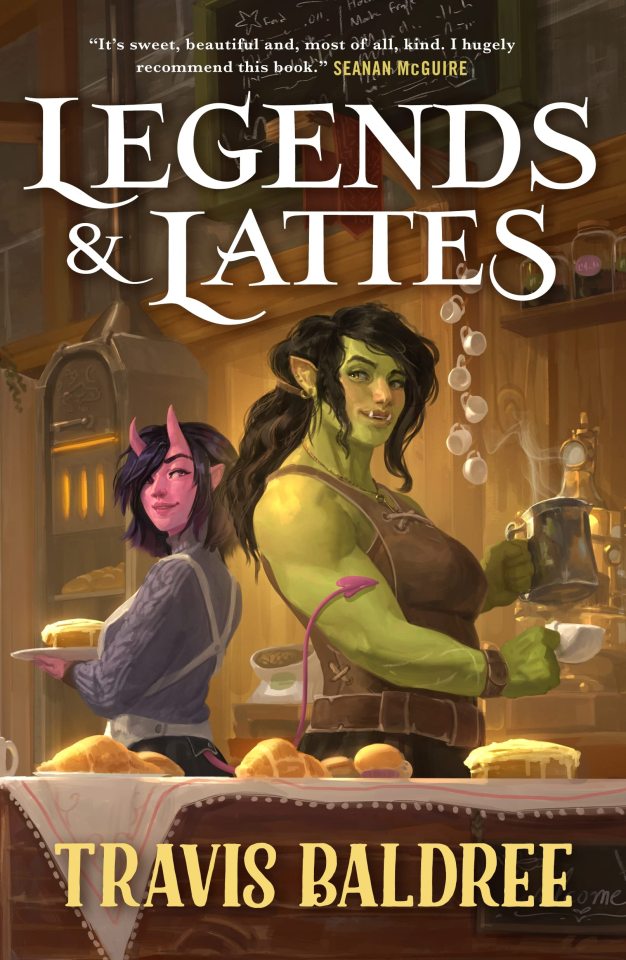
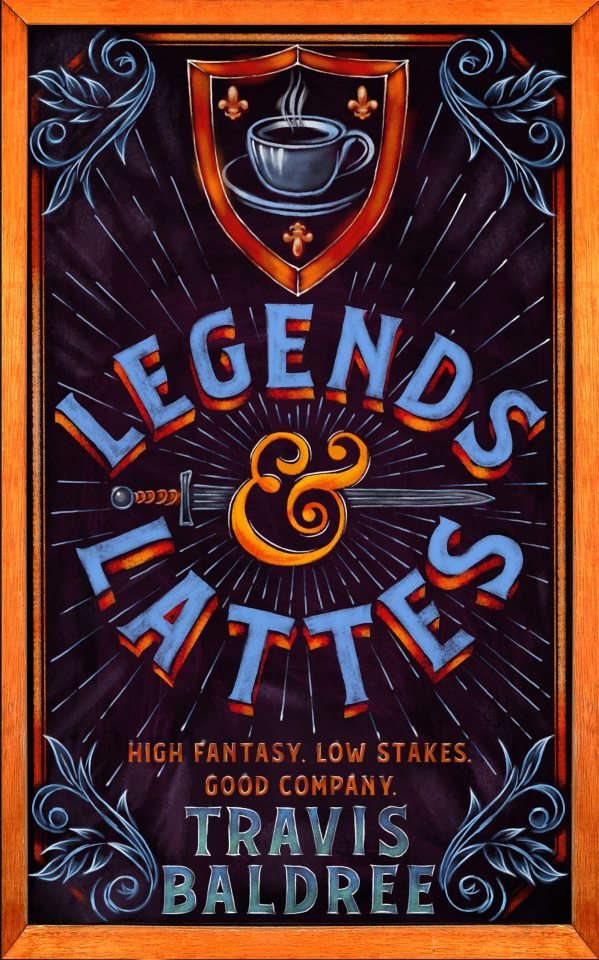
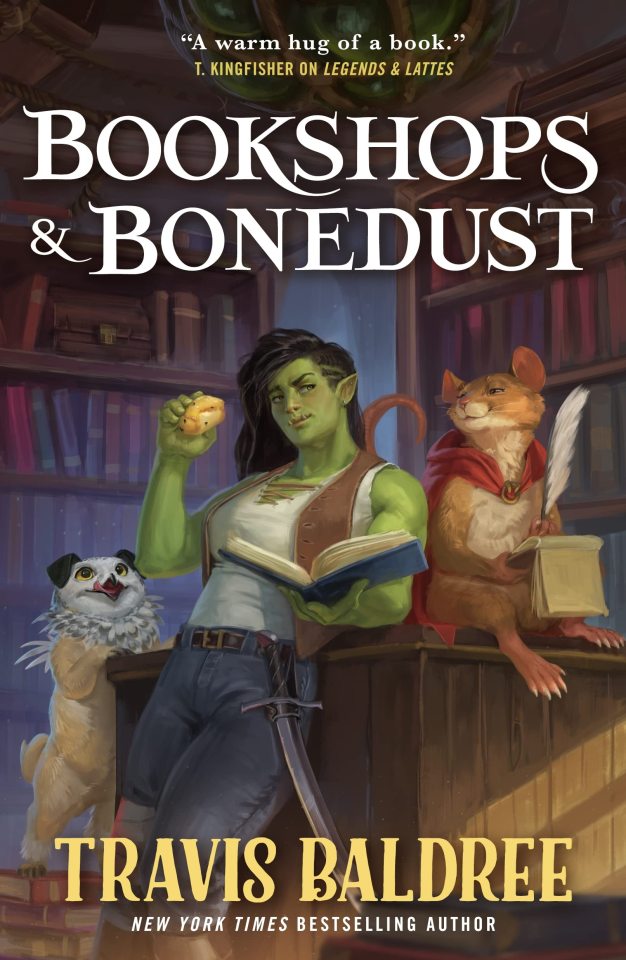

US vs UK covers
#Travis Baldree#legends and lattes#legends & lattes#bookshops and bonedust#bookshops & bonedust#cozy fantasy#book covers#fantasy fiction#fantasy reads#fantasy books#sff fiction#sff books#sff reads#fantasy recs
481 notes
·
View notes
Text
i have a lot of thoughts about City of Blades, because, good lord, i think it's one of the best books i've ever read as an adult
(spoilers below, duh)
City of Blades is ultimately a book about war, and the associated glorification of death that comes with it, the implication that, even if you die, it will be for a higher cause. it's a lesson that's been constantly repeated throughout history. you saw it in ancient times, with the Norsemen and the concept of Valhalla, that dying in battle would net you the most desirable of afterlives. you saw it with The Crusades and the retaking of the Holy Land, for the Chosen Ones, from the dirty, heathen Muslims. you saw it in the recent past, with the Cold War and the fight against the evils of Communism to spread Democracy across the world. you see it today, with the War on Terror, continuing the good fight to spread Freedom and Democracy.
but City of Blades serves as a deconstruction of that idea, to point and say, "is this not wholly and utterly insane? death is death, no matter how much you try to dress it up." many characters in this book thought they were giving their lives to something greater, and yet that turns out not to be true.
Rada Smolisk orchestrated her scheme because she thought it would jump-start the Night of the Sea of Swords and destroy the world that took everything from her. what did she get for it? a bullet to the face.
Sumitra Choudhry made her way into the City of Blades because she thought that she was going to make the ultimate hero play to stop the Voortyashtani sentinels. what did she get for it? a lonely death of dehydration.
Pandey picked a fight with Turyin because he thought that he would avenge his fallen love and exact a measure of revenge for the wrongs that had been done to him. what did he get for it? a blade to the heart.
Lalith Biswal orchestrated his scheme because he wanted his opportunity to start another war so that he could claim victory and be lauded for it as a hero. what did he get for it? a bullet to the chest.
you see so many descriptions of this disbelief over the shattering of the idea of a glorious death. Turyin, upon finding Sumitra Choudhry's corpse:
There's a trace of irritation or discomfort to [Choudhry's] large, dark eyes, as if she can't believe this is happening to her, that she should come so far just to die here, alone on a bridge over ghostly waters.
and, after she shoots Biswal:
He stares at her in disbelief. Then he says, "I'm ... I'm not going to die, am I? I can't. I just can't ..." Mulaghesh watches him. "I wasn't ... I wasn't supposed to die like this," he says softly. "I was supposed ... to have a hero's death. I'm owed a better death." [...] She can't quite tell when he dies. She can tell his vision is failing him, and then perhaps he's passed out from blood lost but is still alive ... and then ... Nothing.
all of these people died ignominious, unremarkable deaths. because war doesn't give you these hero moments like you would read about in an epic, or a movie or TV show. those are often written by those who weren't there and would never understand what kind of hell war is like. war just takes lives, without any regard for a narrative or a story.
but this is a story. and one could reasonably expect the narrative expectation of important characters meeting just fates, because they have importance to the plot structure. but this is where Bennett also plays very well upon the expectations of the readers, as well.
it's easy enough to assume that Signe would survive, because she's Turyin's sidekick, and, of course, she has to make it, right? nope! one would also assume that Vallaicha Thinadeshi would have merited a more meaningful and fulfilling death, right? nope! it's a common trope in fiction that the good guys live, and the bad guys die, because that's how it's supposed to work, right? but what we see here is that good guys and bad guys, alike, meet ends that feel hollow, unfulfilling, and meaningless. it's a very interesting subversion of expectations on Bennett's part.
and, of course, Turyin is the one that has to pick up the pieces from all of this. you would think that someone who committed as many atrocities as she did during the Yellow March and committed just as many heroic acts during the Battle of Bulikov would have merited a heroic end? nope! it's almost ignominious and unremarkable, in and of itself, for Turyin to be the last one standing at the end of all of this.
anyway. all of this is to say that i truly enjoy the thematic elements that have been employed here. it's easy enough to think back to all of the books that i read in primary and secondary education, where i only really thought of those books in terms of the themes that i would have to describe in a paper or on a test. this book has really employed such a theme in spades, but it's also provided a very enjoyable narrative to read.
4 notes
·
View notes
Text
Sharing this topic again, to spread these news further. The comments on Matthew's post are also interesting.

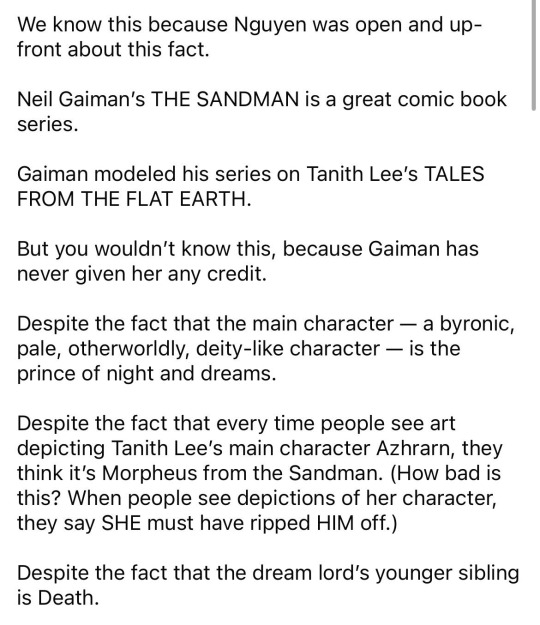
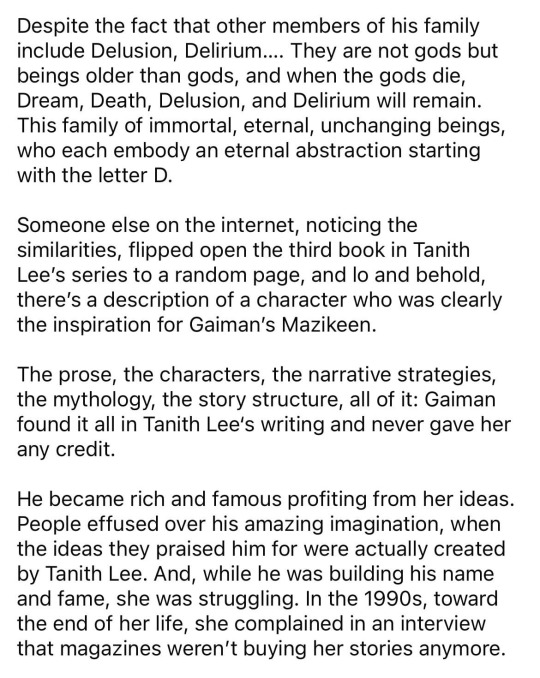
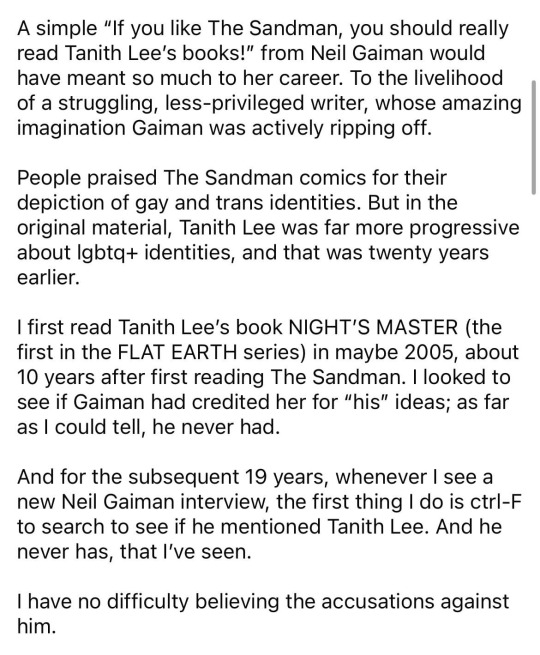
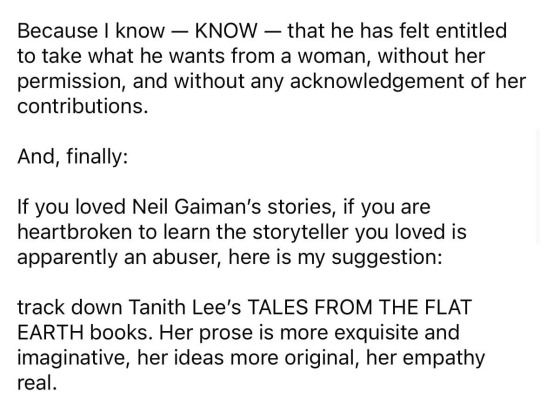
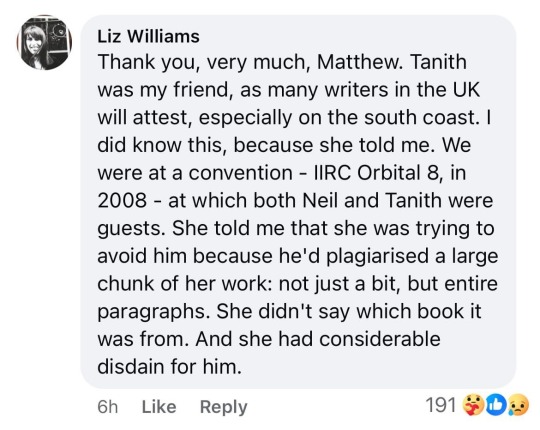

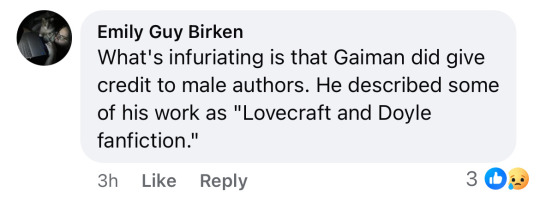
Shared here today by Matthew Boroson on Facebook. (ETA: Gaining inspiration from other authors is great. Lifting passages and avoiding giving credit isn’t.)
Tanith Lee was the first woman to win the British Fantasy Award for best novel, for the second book of the Flat Earth series. She died in 2015. You can buy Tales From the Flat Earth here and here .
#neil gaiman#tanith lee#neil gaiman allegations#tales from the flat earth#fantasy novels#fantasy fiction#sff fiction#alternatives to the works of neil gaiman#the sandman#sandman#fantasy writer
34K notes
·
View notes
Text
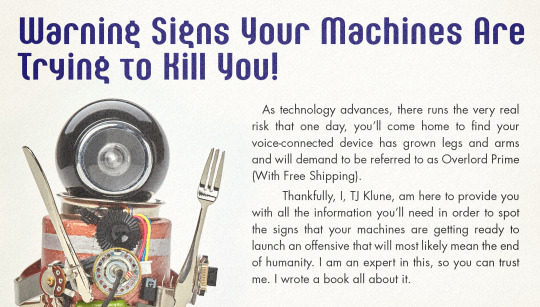
"Warning Signs Your Machines Are Trying to Kill You!" by TJ Klune
(Legally, I’m required to tell you that when smart phones first became popular, I bought one and then asked for the address of the app store because I thought it was a physical location I had to go to in order to download apps and not something already on your phone. Also, I was recently told I speak like an old person so as a warning, there will not be any slang you youths typically hear, especially on Tumblr. Any slang I’ve learned in the last five years has been against my will. I still don’t know what FOMO means, and I don’t care.)
1. Oh no! You and your family are trying to enjoy a movie night, but Overlord Prime (With Free Shipping) wants a sacrifice at the altar of their god, BeeZos. Should this happen, do not attempt to give Overlord Prime (With Free Shipping) a cantaloupe with googly-eyes on it and say that it is your baby. Overlord Prime (With Free Shipping) knows the difference between fruit and children. Instead, ask the machine to order dog food, and it will forget about eating humans for a little while.
2. If you own a very fancy vehicle that can drive itself, always make sure to carry a brick. That way, when the car locks you inside and attempts to drive you off a cliff into a gas station, you can break the window using the brick. You will then have to jump out, but make sure you do so in time so you can watch the wicked-ass explosion when the car hits the gas station, and you can revel in your victory over your car.
3. This one will hurt. I’m sorry, but it��s true. Chances are, you’re reading this on your phone right this second. To be safe, after you’ve finished reading this post and have clicked on the affiliated links to purchase my books, you should throw your phone into a volcano and then move to South Dakota where there are no machines, only wind and cows. That way, when everyone else gets the 5GZombieVirus that people on Twitter (I’m not calling it the other thing, shut up) seem to think is real, you’ll be safe with your cows on a windy day.
4. Get rid of your air fryer. Don’t ask me why, just do it. Red flags all around. Danger, danger.
5. Do you know of the Clapper? That thing first launched in the late 20th century (I wrote it that way to make me feel old) where the commercials showed cranky old people unable to reach their light switches, so they got a thing called a Clapper that turns your lights on and off when you clap? Guess what? Those will be the first things to try and kill you. If you love your gram-gram, save her from the Clapper. When she asks why you are destroying it with an ax, tell gram-gram it’s because you love her.
6. Do you live in a smart home? The kind where everything is connected to the internet, including your refrigerator? The refrigerator that holds your perishable foods? And oh, would you look at that: how many ice cubes have you kicked under it rather than picking them up when they fall to the floor? A dozen? A million? The refrigerator remembers. And it will spoil your food in seconds. What then? What are you going to eat? Canned food? Not if the refrigerator falls on top of you!
Unfortunately for you, this is where it must end. I hope this has given you enough information to help you survive the inevitable. If you do not heed my warnings, well. Who cares. I’m not in charge of you. Do whatever you want. Just don’t come complaining to me when gram-gram gets the clap.
#tor books#booklr#new books#in the lives of puppets#tj klune#tbr#sff#science fiction#team robot#unreality#long post
3K notes
·
View notes
Text
Aleksandr Kuzin - When Worlds Collide (USSR, 1974)
artists: Galina Boyko and Igor Shalito

499 notes
·
View notes
Text


Octavia E. Butler's must-read masterpiece Parable of the Sower (1993) begins its first chapter on July 20, 2024.
815 notes
·
View notes
Text

Sunset Eyes
Old oil painting of Thane.
#thane krios#painting#science fiction#sff#alien#fantasy#illustration#artists on tumblr#drawing#oil painting#traditional art#traditional illustration#portrait#mass effect#me3#me2#fanart
465 notes
·
View notes
Text



























Showcasing art from some of my favourite artists, and those that have attracted my attention, in the field of visual arts, including vintage; pulp; pop culture; books and comics; concert posters; fantastical and imaginative realism; classical; contemporary; new contemporary; pop surrealism; conceptual and illustration.
The art of Richard M Powers.
#Art#Richard Powers#Richard M Powers#Books#Book Cover#Book Cover Art#Cover Art#Sci-Fi#Science Fiction#Sci-Fi Books#Science Fiction Books#SFF Books#Philip K Dick#Arthur C Clarke#JG Ballard#Edmond Hamilton#Richard Matheson#Murray Leinster#L Sprague De Camp
173 notes
·
View notes
Text
Girl who is imperceptible, uncanny, strange.
Her face disappears when you look at it, distorting into a blur of unfamiliar memories. Her motions make no sense, moving in directions you can't name. She speaks in words you maybe understand, possibly. You think you do, at least.
When you are with her, the frenzied blur of sex and body fluid says all that you both need to hear. but every moment prior and afterwards, she becomes that foggy humanoid presence that you can't parse even if your life depended on it.
She weaves her way into your mind; you remember why you were drawn to her (or why she was drawn to you), but you can't fetch the memory even if you tried. You have a vague memory of her smiling, or laughing, or making intoxicating sounds when your skin connected, and you know it was something you did that invoked this reaction. When you try to recall what you did, though, all you can see in your mind's eye is noise and turbulence.
See, humans are pattern seekers by evolutionary design, so every time you perform an action to her, you add the accompanying reaction to your mental map of her. But the pages of said map are soaked in coffee and bile, tearing to shreds each time you put your pen to it. You try to read it back, tracing your fingers across the same routes and landmarks, but you end in a different location every time, even if all variables are accounted for. Every attempt at navigating her unearthly self is futile and not without a massive margin of error.
Moments of clarity shine through, though, during sex – oases of respite in a desert of unfamiliarity. You see her face, smiling and contorting in pleasure. You feel her heart rate increase in direct correlation. Her hair is unusually soft – you aren't sure if you want to pull it and hear her whine and grunt, or if you want to run your fingers through it gently to really commit that physical sensation to memory. Her eyes, so emotive, speak grand poems in conjunction with her eyelids. You can hear her voice telling you to "keep going," pleading you to continue "just like that," and begging to reach climax. Through the overwhelming storm that is the connection of your flesh (you can feel her flesh for the first time in a while), you can enumerate every single vibration of her vocal cords and what it all means. It's understandable and crystal clear, even if for just an hour or two.
Afterwards, she silently retreats back into the glamer, obscuring every facet of her being and her influence once more.
You ask how it felt.
She replies ████████████, in a voice that is not just flat and devoid of emotion, but somehow entirely lacks tone to begin with.
You ask her if she needs a glass of water or a towel, maybe a shower. She gently coos at you, with a raspy emotion that feels like grit and silk, ◌̶̹̿⃤̶̰̌◷̴̲̒◌̴̞̇⃟̷̫̋
Once again, you can't scrutinise what she's saying anymore. She becomes a formless mass without weight or gravity. Did you do it right? Is she comfortable? Are you impeding on her presence by sharing the same blanket? The infinite questions burn a hole in your chest like white-hot coals placed onto a slab of ice.
There's an allure to her, of course, and you remember it clearly.
But the glamer begins to alter your own memory.
When she came into your life, did you read her face right? Did she even have a face to read? Did you remember that night clearly? Do you remember it at all?
Her otherworldly influence jabs at you, taunting you.
Or maybe it's just you taunting yourself.
It's impossible to tell. She melts your memory, synapse by synapse. You genuinely cannot remember anything about her without it being laid under a dense veneer of suspicion.
Most frustratingly of all, she gets along great with every other one of those formless, nameless humanoid presences that you know... Though you can't remember if those other "people" you see were always like this—like her—or if she's tainted your psyche to the point that everyone becomes unreadable.
Your own face is the only thing you're sure of anymore. But even still, you begin to worry if the expressions you consciously assume are the ones that the formless presences around you are expecting you to make in response to their dim gurgling and sweaty blinks. It's torture. You begin to move your focus from them to yourself. You manually emote so that you don't accidentally smile when you should frown. You watch every syllable that collapses over your lips to make sure they don't misconstrue your joy for entitlement. It's all in vain, though, because you never get a chance to verify if this output is correct. She stares at every part of you at once with an impossible number of eyes. You can't tell what the eyes say in return.
She is eldritch. She is dreamlike. She is unknowable, preternatural, and vague. The fact that you cannot understand a single aspect of her form is stressful.
But the sex was good. I wonder if she's free any time soon? Maybe I should just ask if she could use tone indicators next time.
230 notes
·
View notes
Text
for many years the novels i read used to fall under the loosely-defined 2010s scifi/fantasy subgenre i tend to call 'lesbians and imperialism'. broadly speaking, these books involve a setting where some big old empire is fashing the place up, and typically follow some girl who gets caught up in the machinations of power. there is usually some kind of identity-related shit, like having someone's ghost riding in your head, or being an AI inhabiting multiple bodies. they take a certain degree of cues from the past generation of 'anthropological' scifi, le guin and cherryh and so on. they almost always have 'empire' or 'imperial' somewhere in the title.
there are many specific things i do (still) like about these books - i like how imperial raj radch plays with fake-translation of songs and calls everyone 'she'; i like machineries of empire's poetic mathematical technobabble; i like the mirror empire's lush body horror; i like a whole damn lot about the locked tomb, which puts most of them to shame with its command of narrative voice and vividness of character. but in all honesty, as far as their ostensible unifying subject of imperialism, very few of these books have more insight than fucking star wars. most of them are instead sort of obsessed with the trappings of power: fancy gloves and sexy generals and tea-sipping with emperors, or being the bestest prodigy at the fancy school, the most ruthless general in the army. if we see colonialism happening onscreen - a big if - it's usually direct conquest by overwhelming military force and nothing more.
so far, the only one i've found that actually seems to have a go at the subject with sincerity is baru cormorant. that's kinda why i wrote so many fucking words about it. it is, crucially, willing to get into it - which is to say that it is an uncompromisingly nasty story populated by all the atrocities of the last few centuries, genocide and eugenics and lobotomies and all; and all of this does a lot to ensure its attack on the 'i will rise within the system and subvert it' aspiration has any bite. but it also has enough humour and energy to make that go down in a way that's viciously entertaining rather than a dry lecture.
seth is a pretty unique writer within the genre - the product of a lot of quite horrible pressures i wouldn't wish on anyone but i can unfortunately to some degree say 'same hat' to. arguably the idea of addressing the entire phenomenon of colonialism in a mass market scifi/fantasy novel is all a bit grandiose, but i think if you're going to try it on, i think you gotta commit. if you fail, at least it will be interesting. scifi is at its best as a genre of deranged ambition.
but i'm also reading james baldwin presently and good god can that man write. i missed out on so much by reading mostly this one specific type of scifi. my past self was insane and brainwashed in various ways (i still am, just maybe more self-aware about it lol), so i forgive her, but honesly, never limit yourself to one genre! it's silly. especially don't stick to one very niche subgenre for convoluted moralistic reasons. i promise, whatever it is, you can find your specific form of satisfying pervert shit all over the shop.
83 notes
·
View notes
Text




US vs UK covers
#fantasy books#fantasy reads#heather fawcett#emily wilde’s encyclopaedia of faeries#emily wilde's map of the otherlands#cover love#sff reads#sff books#sff fiction#fantasy recs#fantasy fiction#cozy fantasy
185 notes
·
View notes
Text
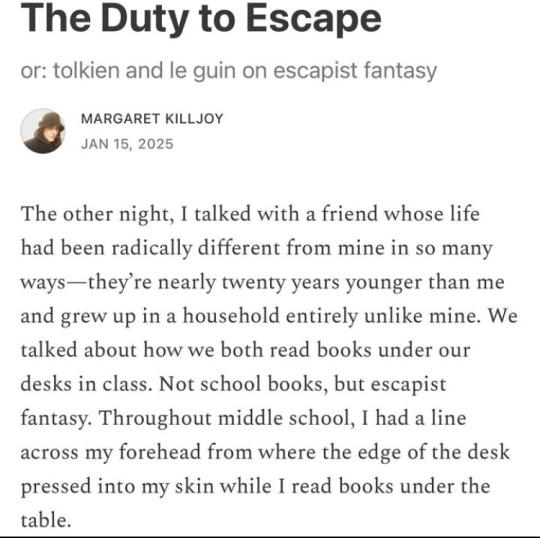
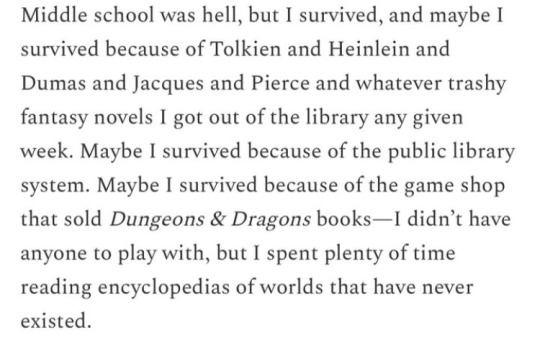
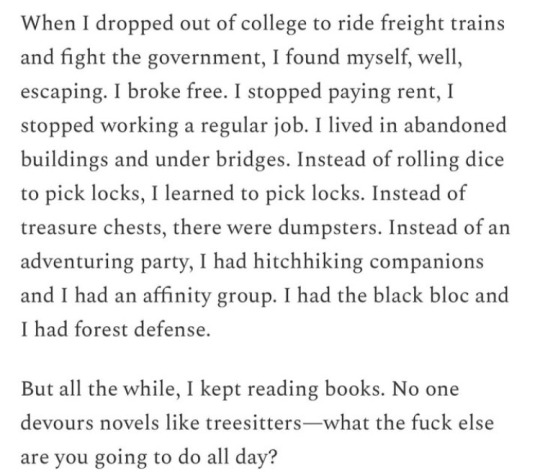
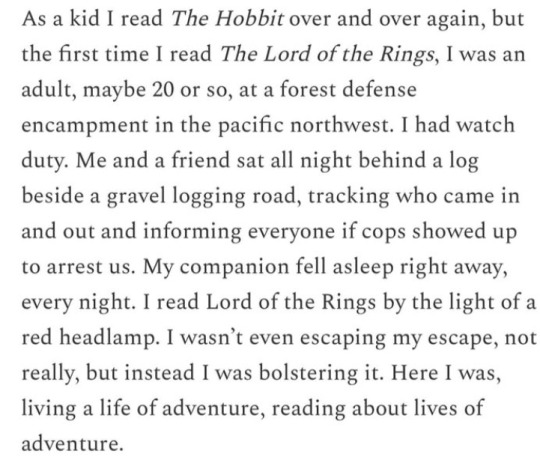
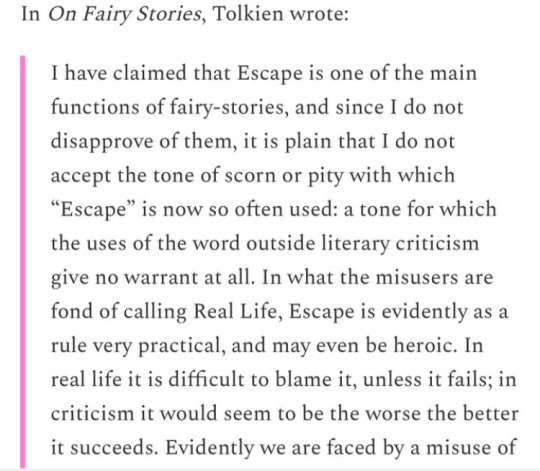
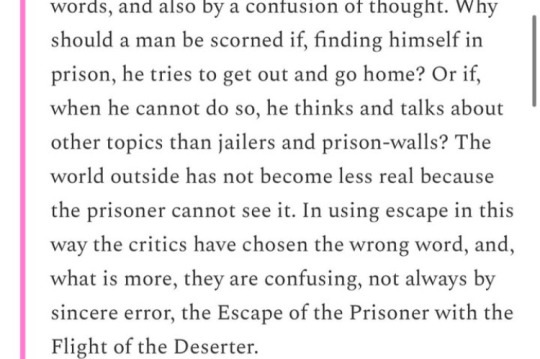
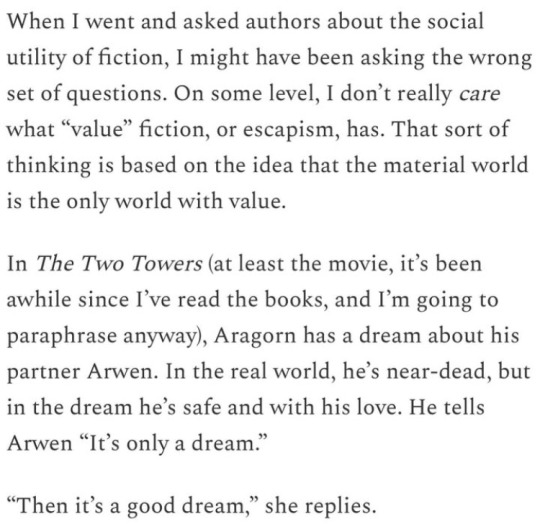
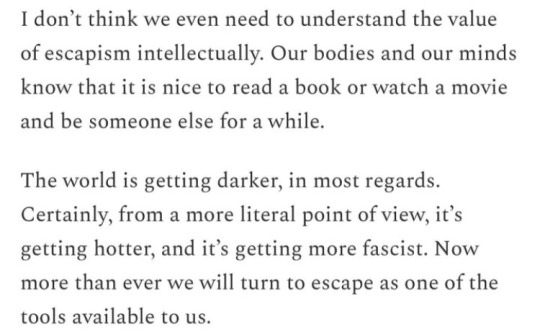
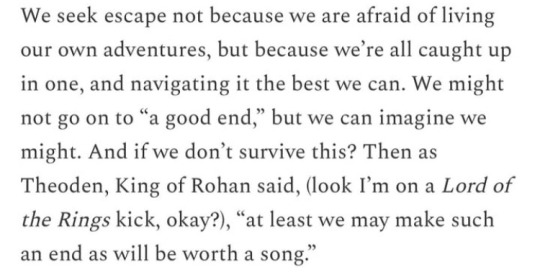
excerpts from a really good article by Margaret Killjoy on her substack today about the power of stories and why some leftist critics can be misguided when using ‘escapism’ as a pejorative. you can read the rest of it down below if you subscribe to her
margaret killjoy is an anarcho-communist author, artist, musician, journalist, podcaster, punk and trans woman; and one of the role models i look up to
#margaret killjoy#substack#literature#fantasy#sff#speculative fiction#tolkien#lord of the rings#lotr#the two towers#stories#fairy tales#the narrative#books#lit#anarchism#ivy.txt#ursula k. le guin
76 notes
·
View notes
Text
no nuance button, you can tell me all your thoughts in reblogs and tags
164 notes
·
View notes
Text
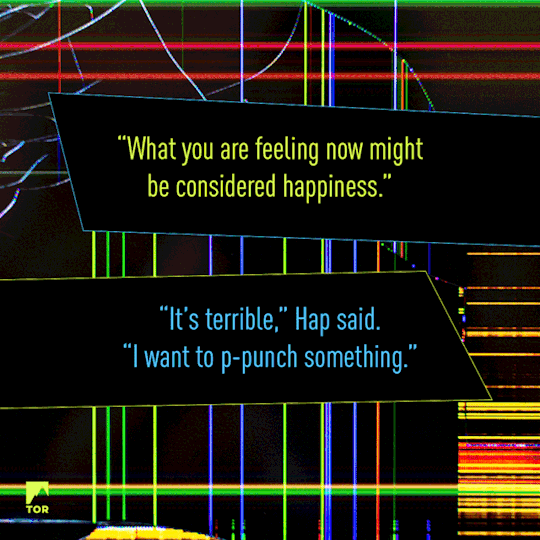
This advertisement is for In the Lives of Puppets by TJ Klune, a book about robots and what it means to be human.
"In The Lives of Puppets is glorious, a thoroughly entertaining and deeply stirring journey through a world of extraordinary robots. The characters here are so vibrant, and the story proves that love stretches well beyond the world of humans." —Chuck Tingle, Hugo Award finalist and author of Camp Damascus
WHAT IT'S ABOUT
Would you like a robot-filled book set in the future with asexual representation, humor, and found family? This may be the book for you. It’s the story of a human deciding whether he can accept love with strings attached while going on a journey to save his father with the help of an anxious vacuum, a sadistic nurse machine, and an android with a dark past.
1K notes
·
View notes
Text
90s Sunday: post-soviet pulp
Ursula Le Guin - The Left Hand of Darkness (Russian Federation, 1993)
Artist: Alexander Valdman

#sff#sci fi art#science fiction#sci fi#scifiart#book covers#russia#90s#ursula le guin#left hand of darkness#the left hand of darkness
182 notes
·
View notes